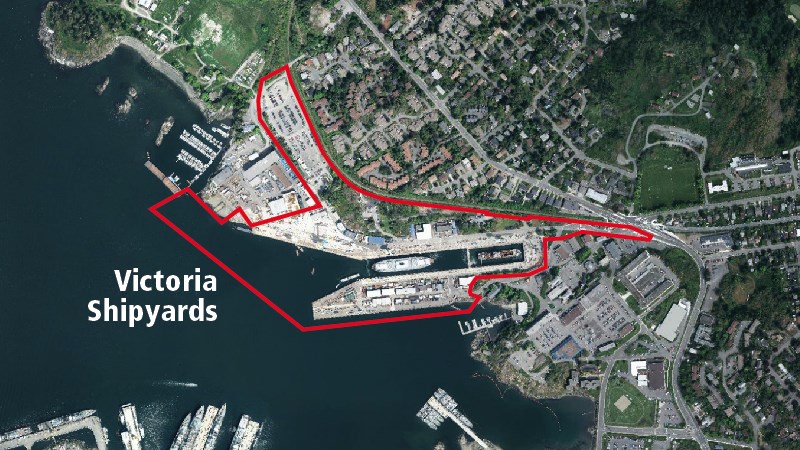The Supreme Court of B.C. has overturned a B.C. Human Rights Tribunal ruling that a black worker had been subject to discrimination while working at Victoria Shipyards in Esquimalt.
“There was no evidence capable of proving the case of discrimination before the tribunal,” Justice Kenneth Ball stated in the Aug. 9 Supreme Court decision.
Victoria Shipyards is owned by North Vancouver-based Seaspan. Jonathan Whitworth, chief executive officer of Seaspan, said in an interview on Monday that the company took the matter to the higher court “because we are interested in our brand and our name and our reputation. We felt the only thing to do was actually take this as far as we could to the Supreme Court, even though technically we weren’t financially harmed.”
The issue was about more than money, and “sure enough, the Supreme Court agreed,” he said.
Seaspan takes respect in the workplace seriously and conducts workshops for managers and employees, Whitworth said.
The key issue before the Supreme Court was whether the evidence given at the tribunal’s 2012 hearing supported the decision, Ball wrote in his decision.
Austin Francis testified at the tribunal’s hearing that a white rag with two eye holes cut out had been placed on his tool bag when he was working at the shipyard in April 2009.
He had left the ship for a break, and the white rag was there when he returned, he said.
Francis said he did not tell anyone in upper management about the rag because it was late at night and dark and he did not see anyone, court documents state.
He later told a co-worker that a rag had been cut out to look like a Ku Klux Klan mask. That co-worker did not witness that event, the document said.
A black-and-white photograph of a white rag was apparently taken in his lawyer’s office. The rag in the picture was submitted as an exhibit. No one other than Francis said they saw the rag, Ball said.
The tribunal found that evidence about when the rag incident occurred was inconsistent.
Tribunal member Marlene Tyshynski said in her decision that Francis was unreliable and seemed nervous and confused.
She partly upheld the complaint from Francis and said that on a balance of probabilities a white rag with eye holes had been put on his bag.
Tyshynski ruled that Francis had suffered adverse treatment at the shipyard and that his race and/or colour was a factor in the treatment.
No financial penalty was imposed.
Ball’s decision said that there was no reliable evidence to show that a rag or mask had been placed on Francis’s bag. “In these circumstances, the basis for a finding of liability for Victoria Shipyards is without support in the evidence on a balance of probabilities or otherwise and is speculative at best.”
Ball ordered Francis to pay costs to Victoria Shipyards.
Francis’s lawyer could not be reached Monday.



